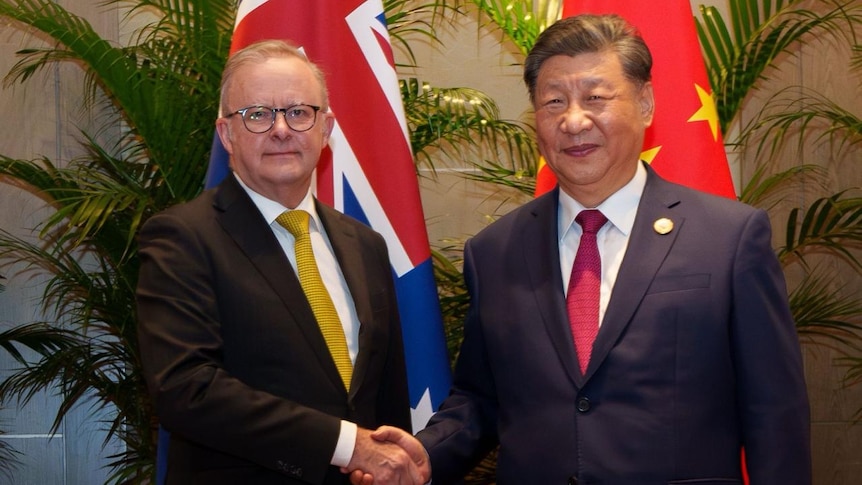
Prime Minister Anthony Albanese is set to embark on a significant six-day trip to China on March 15, 2024, visiting major cities including Beijing, Shanghai, and Chengdu. This visit marks an important moment for Australia as it navigates its relationship with both China and the implications of Donald Trump’s unpredictable “America First” trade policies. During the trip, Albanese will conduct annual leaders’ talks with Li Qiang, China’s Premier, and meet with President Xi Jinping.
The focus of Albanese’s discussions will be heavily centered on economic ties, particularly the job creation potential tied to China’s market. China has consistently remained Australia’s largest export market, and the economic relationship is showing signs of recovery after previous tensions. Notably, beef exports to China reached record levels in April 2023, demonstrating the ongoing demand.
Economic Opportunities Amid Political Challenges
Accompanying Albanese will be a delegation of prominent business leaders from sectors such as finance, resources, agriculture, and education. This trip aims to capitalize on the expanding middle class in China, which presents substantial opportunities for Australian businesses. While the Australian government is actively seeking to diversify its trade relationships, the reality is that no alternative market can match China’s vast potential.
Despite the optimistic outlook, Albanese faces challenges in balancing trade with political realities. The Chinese government has indicated that it expects greater political cooperation to accompany the booming trade relationship. For example, Xiao Qian, China’s Ambassador to Australia, recently proposed expanding the free trade agreement to include advanced sectors like artificial intelligence. Albanese’s response has been cautious, indicating a reluctance to deepen ties in areas that may compromise national security.
Analysts, such as Richard McGregor from the Lowy Institute, emphasize that Australia is unlikely to integrate Chinese technology into its systems due to security concerns. “You not only have to use it securely, but you have to use it in tandem with allies and partners,” McGregor stated. This sentiment underscores the delicate balance Australia must maintain during these discussions.
Strategic Concerns and Security Issues
While engaging economically, Albanese’s government is taking a firm stance on sensitive sectors. Australian authorities have expressed intent to reclaim control of the Port of Darwin from the Chinese company Landbridge, a promise made during the last election. This decision has been met with criticism from China, which accuses Australia of unfair discrimination. Treasurer Jim Chalmers reaffirmed that the port would be returned to Australian ownership, signaling no intention to reverse this course.
Discussions during the trip are also expected to address broader geopolitical concerns, particularly regarding China’s military ambitions in the Indo-Pacific region. Australia views China’s military build-up and actions against Taiwan with alarm. The recent activities of the People’s Liberation Army Navy near Australian waters have heightened these concerns. Additionally, Australian security agencies report ongoing attempts by Chinese actors to compromise critical national infrastructure.
Albanese is likely to raise these issues during his meetings, despite Australia’s limited leverage in this situation. The Australian government remains committed to addressing these disputes, prioritizing national security and regional stability.
The geopolitical landscape is further complicated by the looming presence of the Trump administration. With rising tariffs and trade tensions, Australia is keen on ensuring the United States remains a stable ally in the region. The unpredictability of Trump’s trade policies poses potential risks for Australia, which is already balancing pressures from both the United States and China.
Climate Cooperation on the Horizon
Despite these challenges, opportunities for collaboration exist, particularly in addressing climate change. Foreign Minister Penny Wong highlighted the importance of China in solving global challenges, including climate issues. With China being the world’s largest emitter, its role in renewable energy production is crucial for global efforts to reduce emissions.
The Australian government is expected to announce some form of climate cooperation during Albanese’s visit. Australia recognizes the need for access to Chinese technology and industrial capabilities to bolster its own green initiatives. Caroline Wang from Clean Energy Finance noted that China produces a significant majority of the world’s electric vehicles and solar panels, making it an essential partner in the energy transition.
As Albanese prepares for his meetings, he will need to navigate a complex landscape of economic potential, political pressure, and security concerns. The prime minister’s approach will be closely scrutinized, not only for its implications in Australia but also for its potential impact on international relations in the region. This visit is pivotal for Australia as it aims to strengthen ties with China while remaining firm on its national interests.






